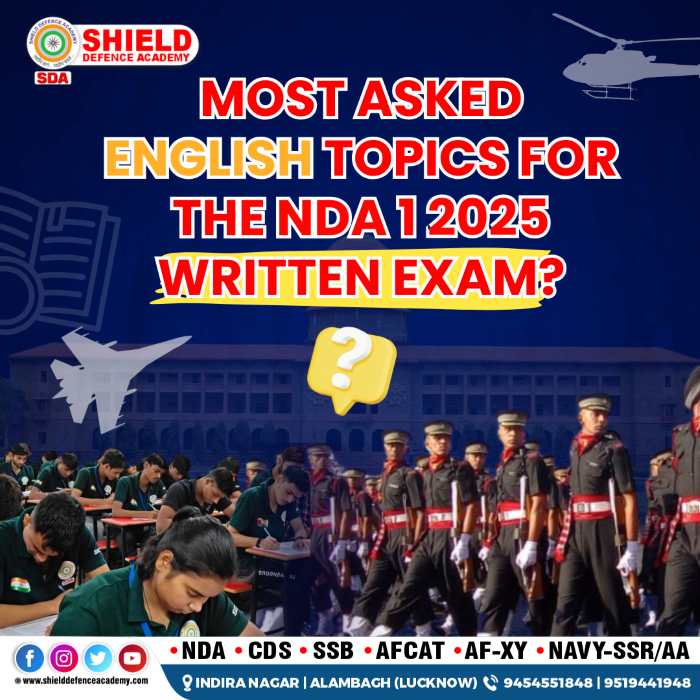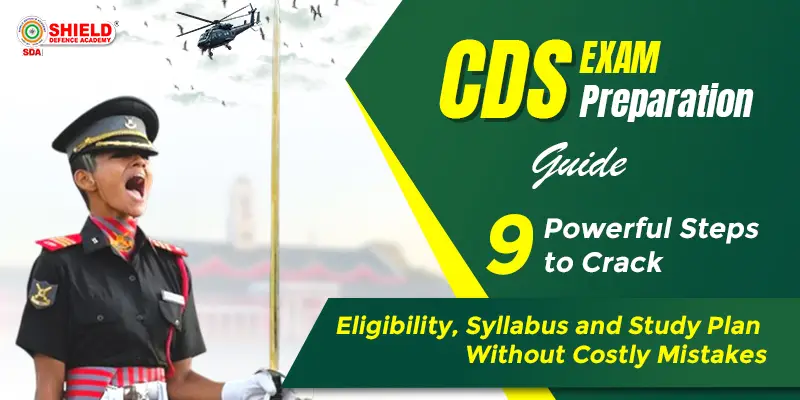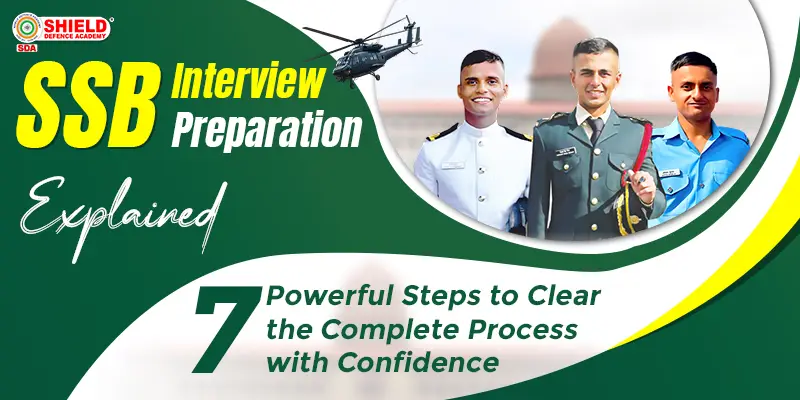The NDA exam is an important stage for applicants who want to join the Indian Armed Forces. The Most asked English topic for NDA 1 2025 Written Exam are clove test, error spotting, sentence Rearrangement and reading comprehension. Among its different portions, the English language component is crucial in determining a candidate’s communication, comprehension, and grammatical skills. A solid command of English not only helps you score well in this area, but it also improves your overall performance on the exam. This introduction seeks to highlight the important areas that are typically assessed on the NDA 1 2025 written exam, giving students a more targeted approach to their study. Understanding these areas can help aspirants improve their skills and gain confidence as they approach the exam.

Most asked English topics for the NDA 1 2024 written exam are: –
1.Sentence Rearrangement
2.Error spotting
3.Vocabulary
4.Grammer
5.Reading comprehension
6.Fill in the blanks
7.Idioms and Phrases
8.Clove test
Sentence Rearrangement
Sentence rearrangement is a frequent activity in language acquisition and comprehension in which the words or phrases in a sentence are messed up and must be put back in the correct sequence. Here are a few tips to help you rearrange sentences:
- Determine the Subject: Decide who or what the phrase is about. The topic usually appears at the beginning of a sentence.
- Locate the Verb: Search for the action or state of being in the text. The verb usually follows the subject.
- Find Objects and Complements: Identify any objects (what the action is taking place on) or complements (more information about the subject or object).
- Look for Modifiers: These are words or phrases that provide additional information about adjectives, adverbs, and prepositional phrases.
- Reconstruct the Sentence: Begin by combining the subject and verb, then add the objects and any modifiers in a logical sequence.
- Read with Clarity: After rearranging the sentence, read it to check that it makes sense and expresses the intended message. For example, if you have the jumbled sentence “the dog quickly ran to the park,” you would identify the subject (the dog), verb (ran), and other pieces before rearranging them to form a cohesive sentence.
Error spotting
Error spotting is an exercise in which you identify grammatical, punctuation, or spelling errors in a given text. Here are some common types of errors to watch for:
- Grammatical errors: Grammatical errors include verb tense errors, subject-verb agreement issues, and inappropriate pronoun usage. For example, “She go to the market” should be changed to “She goes to the market.”
- Punctuation Errors: Check for missing commas, periods, and erroneous quotation marks. For example, “Let’s eat, Grandma” should include a comma.
- Spelling Errors: Look for terms spelled wrongly. For example, “definitely” should be “definitely.”
- Sentence Structure Errors: These include run-on phrases and sentence fragments. For example, “I like to read; I go to the library” is a run-on.
- Word Choice Mistakes: A word may be used wrongly. For example, “He is a very good cooker” should be “He is a very good cook.”
Vocabulary
The following advice and word samples may be helpful if you’re trying to increase your vocabulary:
- Read Frequently: You will encounter more words the more you read. Try reading poetry, books, or articles.
- Use a Thesaurus: To increase your vocabulary and find synonyms for words you use frequently, look them up in a thesaurus.
- Learn a Word a Day: Choose a new word every day, research its definition, and attempt to employ it in sentences all day long.
- Play Word Games: To make learning enjoyable, play games like Scrabble, crossword puzzles, or vocabulary tests.
- Practice Writing: Use new terms to strengthen your writing skills by creating essays, diary entries, or stories.
Grammar
Of course! Grammar is crucial to ensuring that our sentences sound and make sense. It functions similarly to the laws that assist us in correctly assembling words. Some common grammar rules to remember are as follows:
- Subject-Verb Agreement: Verify that a sentence’s subject and verb agree. “She sings” (not “She sing”) is an example.
- Punctuation: Use apostrophes for contractions and ownership (such as “I’m” and “Mary’s book”), periods to finish sentences, and commas to divide items in a list.
- Capitalization: Capitalize appropriate nouns, such as names and locations, and begin sentences with a capital letter.
- Tenses: To indicate when something occurs, use the appropriate verb tense. The present tense “I eat” and the past tense “I ate” are two examples.
Reading Comprehension
Reading comprehension is the capacity to read, interpret, and analyze written text. It includes several crucial components:
- Understanding Vocabulary: Understanding the meaning of words and phrases is critical for comprehending the overall message of the text.
- Identifying Main Ideas: This entails recognizing the author’s main point or argument. It helps to properly summaries the text.
- Recognizing Supporting Details: These are the facts, examples, or evidence that support the primary point. Understanding how these elements link to the overall concept is critical.
- Making Inferences: Instead of clearly revealing something, the author may suggest it. The ability to read between the lines and develop conclusions is an essential component of understanding.
- Analyzing Structure: It can be easier to comprehend the author’s point of view if you understand how the text is structured, including the introduction, body, and conclusion.
- Critical Thinking: This entails analyzing the text, challenging the author’s viewpoint, and developing your own conclusions in light of the data. Reading a variety of texts, summarizing them, discussing them with others, and responding to inquiries about the content are all ways to practice reading comprehension.
Idioms and Phrases
The following list of frequently used expressions and idioms includes their definitions:
- Break the ice: To start a conversation and make others feel more at ease in a social situation. – For instance: “To break the ice at the party, she told a funny story.”
- Bite the bullet: To bravely confront a challenging circumstance. – For instance: “I didn’t want to go to the dentist, but I had to bite the bullet.”
- Hit the mark: To pinpoint the precise cause of a circumstance or issue. – For instance: “When she said we need better communication, she hit the nail on the head.”
- Burning the midnight oil: To continue working on a project past the hour. – For instance: “He was burning the midnight oil to finish his project.”
Clove test
The term “clove test” frequently describes a technique for evaluating and interpreting written works, especially poetry or prose. Although it’s not as well-known as the phrase in dentistry, it might be seen as a metaphor for breaking down a text’s components. When examining literature, you could use a “clove test” like follows:
- Determine the Core Theme: Determine the text’s main idea or message, much like a clove has a potent flavor. What message does the author want to get across?
- Examine words and Style: Pay attention to the words employed. Take into account the diction, syntax, and any literary devices (metaphors, similes, etc.) used in the statement.
- Character Development: Look at how the characters change as the plot progresses. In what ways are the themes reflected in their conversations and actions?
- Setting and Context: Take into account the composition’s setting. What effects do location and time have on the story and its characters?
Conclusion
In conclusion, consider how you personally interpreted the material. What feelings does it arouse in you, and how does it speak to you personally? You can better grasp the text’s meaning and recognize the author’s skill by dissecting it in this way. Please let me know if you require any additional clarity on any subject or assistance with a particular text.

NDA exam
At Shield Defence Academy, one of the leading NDA coaching institutes in India, we offer personalized mentorship from top industry professionals. Our team is committed to providing you with the strategic support you need to succeed in NDA exam.
Take the first step towards achieving your dream of a career in defense. Reach out to us today at 09454551848 / 9519441948. Let our experts guide you towards success!










